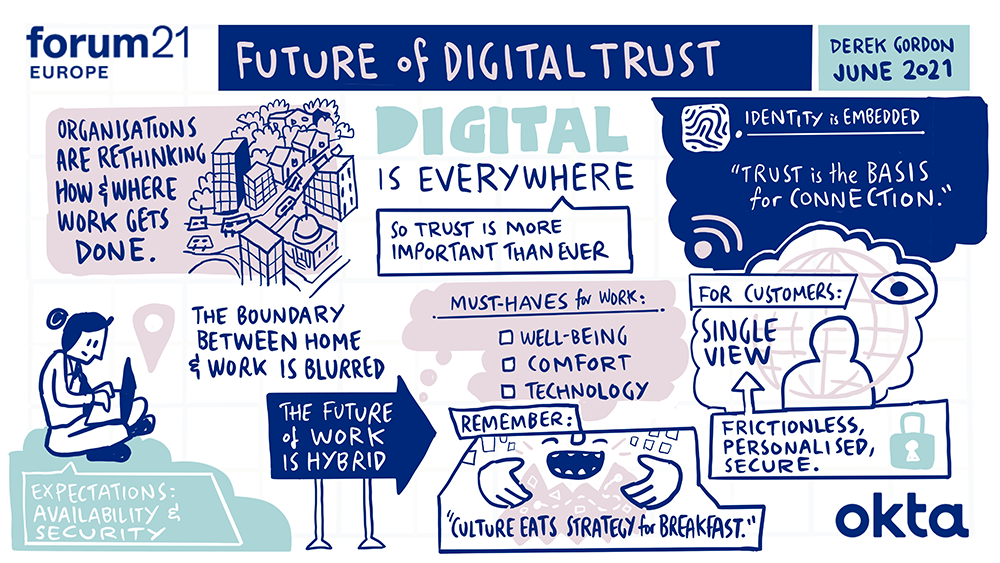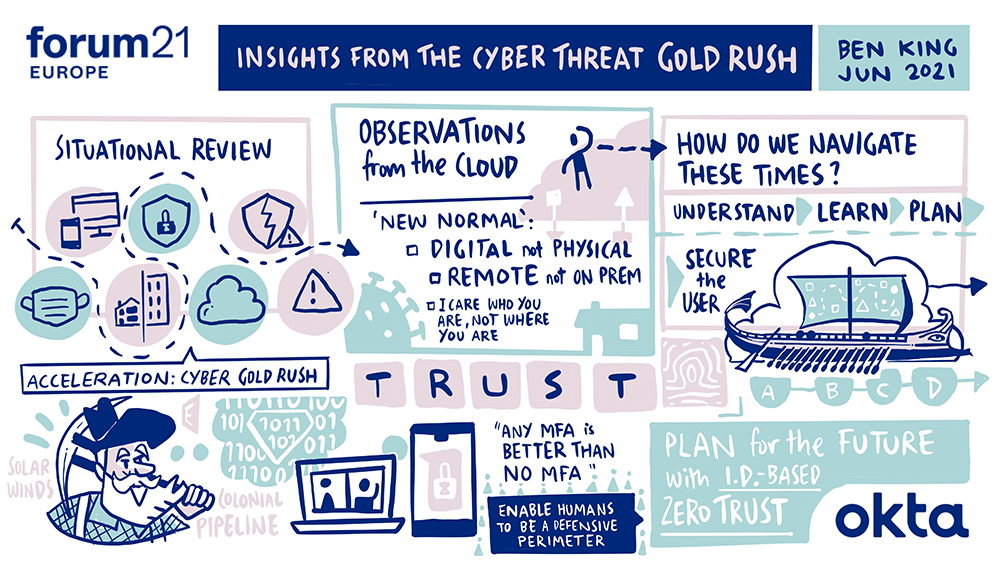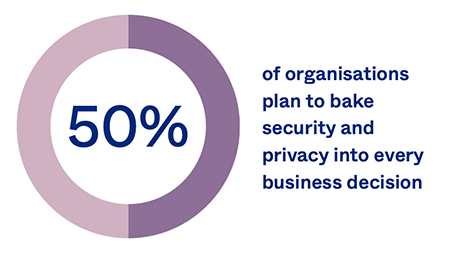Forum21 Europe
Get all of the keynotes and sessions from Forum21 Europe here.
Overview > The New Security Culture
The New Security Culture
A new workforce culture demands a new security culture to enable it to happen. Digital trust is the new oil in the workforce productivity engine. With threat levels mirroring opportunity, the new threat landscape is breaking all records.
Derek Gordon, Director, Cyber Security, PwC
Future of Digital Trust

Ben King, Chief Security Officer, Okta
Insights from the Cyber Threat Goldrush

Markus Hilmes, CISO, AutoScout24
Customer Perspective: AutoScout24





